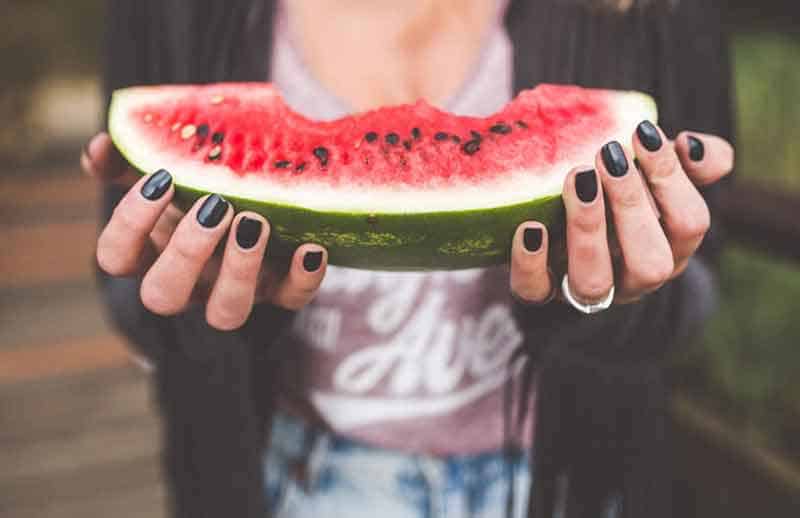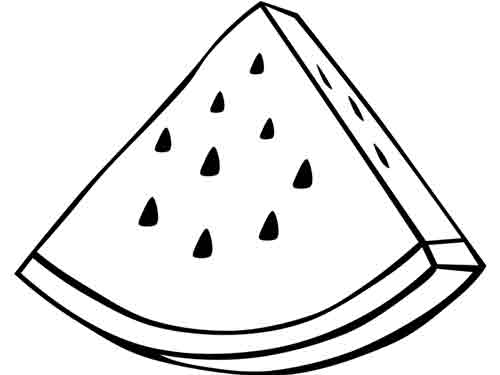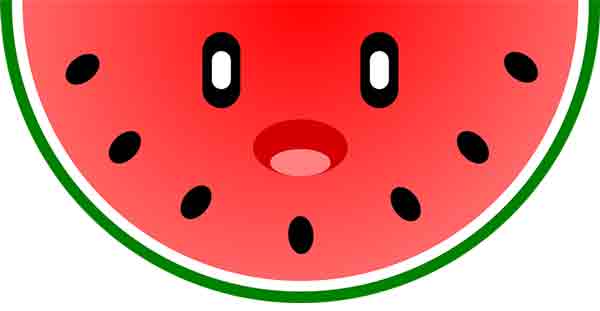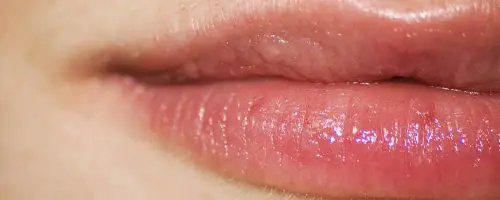The Watermelon Diet: What is it? Does It Work?: As the name implies, your daily food intake is reduced to a few slices of watermelons! We all occasionally enjoy some cool watermelon smoothies, popsicles, and slices on a hot day, but what happens when we have to consume it continuously for a week? Lets analyse if this juicy red goodness detoxification method is right for you or not!
Is it even possible for everyone to try it out safely or are there serious health risks involved?

Inspiring your journey, one story at a time. #LifeFalcon.
Which leads to the ultimate question, in which category of diets does the Watermelon Diet fit in?
Table of Content
So what is the watermelon diet?

As is the purpose of all diets, the watermelon diet is one that solely focuses on the many benefits of watermelons to give your body a thorough cleanse, hydrate your hair and skin and lose some of those pounds!
It is quite similar to juice cleansing, however, with the added benefit of you physically being able to eat the fruit instead of just drinking fluids all day!
Just the act of eating itself tricks your mind thinking you are full after a meal even though most of the watermelon’s content is water. Like all fruits, you do not need to eat a large amount of it and this usually means that you will have smaller, but an increased number of meals.
This diet can last anywhere from 5 to 10 days depending on the person. Ideally, a watermelon diet will have two different phases that can either be implemented separately or combined according to your preference.
To put it simply, you will first have to spend a few days eating nothing but watermelon (yikes! We know), and for the next few days, you have the option of adding other (equally healthy) meals. (More details are given below)
How is the watermelon diet carried out?

Before starting this diet, you need to assess your tolerance to this fruit. Based upon that, there are 3 different ways that this can be carried out:
- Intense, watermelon only diet!
This is the most intense form of the diet where you rely purely on watermelons to get you through your days!
This will be harder to do than the rest, however, it provides a very quick and thorough cleanse of your body.
The most commonly recommended period is three to five days- but you can go up to a whole week if you feel up to it (although this is not advised)!
Do not go beyond that or make this a daily routine for long periods because the side effects and risks can kick in and they are anything but pleasant!
- Both phases of the diet involved!
Quite possibly the most ideal way to carry out this diet is by initially eating only watermelon for a few days (around 3) and then moving onto your mixed recipes for the rest.
Whether you do this for a whole week, or ten days, equally great results are guaranteed for this one.
The best thing about this is that you don’t suddenly go from eating watermelons daily to none at all (which only has short-lived effects).
Because you have to incorporate watermelon into your meals, it makes it easier to continue the habit even after your diet is officially over.
- Only switching over to healthier meals and incorporating watermelons as snacks! (phase 2)
Even though all diets can be hard, this is probably the simplest version of this particular one.
You’re not going to be throwing out all of your leftovers with this one anytime soon! (Maybe rethink keeping that leftover pizza though!)
This is ideally done for 7 to 10 days again and we’ve included the recommended meals that you’re supposed to take along with the watermelon at different times of the day.
This might not be as effective as others, because it’s not as intense and needs more time to work.
The recommended method of carrying out your ideal watermelon diet- About 7 to 10 days long

-
Days 1 to 3
Take out a big cutting board and sharpen your knives because you’re about to chop up a lot of watermelons for the next 3 days!
Since you’re about to eat only watermelon for 3 days in a row, feel free to switch it up a little by making it into popsicles or smoothies or adding your favorite protein powders to it.
This gives your body a chance to thoroughly cleanse itself and get rid of the toxins in your body while balancing out the water and salt content.
There’s one basic rule that you need to keep in mind for this, and that’s the 1:10 ratio. So for every 10kg of body weight, you will be consuming 1 kg of watermelon a day.
For example, a person who weighs 70 kgs should eat about 7 kgs of watermelon per day (yes it is a lot!).
-
Days 4 to 7
Once the hard part is over, you can bring the meat and other veggies back into your life!
Here are some of the highly recommended meals for this phase:
- Breakfast
For breakfast, you could add crackers, whole wheat toasts, or an apple to your morning slices of watermelon.
When it comes to beverages, stick to healthier options like green tea or skimmed milk or green coffee.
- Lunch
Lunch brings an array of dishes from boneless chick or beef with cooked rice to beans or broccoli soups!
Along with, of course, a good old slice of watermelon!
- Dinner
Bring some dairy back into your diet with cottage cheese or experiment with different vegetable salads.
Grilled fish and roasted potatoes are some healthy options as well.
Make sure you’re incorporating some watermelon slices with your dinner if it’s comparatively lighter.
Does the watermelon diet work?
The short answer is that to a certain extent, yes the watermelon diet does work (but not in the long term).
It can be seen as more of a jumpstart to other, more balanced diets on your weight loss journey, rather than the end of it.
On the bright side though, even with just a couple of days of dieting, not only do you lose weight (in most cases) but it also helps to detoxify your body and improves your body health in numerous ways.
After a few days of munching on watermelons, with an improved digestive system, reduced fats, and no excess sugar in your body, you’re bound to feel refreshed and revitalized.
Similar to other single fruit-based detoxification diets, as it flushes out the toxins, it provides a blank canvas for you to now rejuvenate your body, with the right kinds of foods and nutrition!
However, there has been a mixed point of view about this diet as it isn’t all rainbows and sunshine.
We’ve all studied the food triangle in middle school and know that a balanced diet is crucial to have a completely healthy body.
And while watermelons come with their bundle of benefits, continuing this diet for prolonged periods can have certain disastrous outcomes!
Let’s discuss the benefits and the downsides of this diet in a little bit more detail!
Health benefits gained from the watermelon diet
An apple a day keeps the doctor away, but watermelon also goes a long way (to keep you healthy).
- It hydrates your body
As its name indicates, watermelon is about 92% water in composition which means that it truly works wonders when it comes to keeping you hydrated. (Only when consumed in moderate amounts though!)
Some would even say claim that it’s the equivalent of an ice bath- in food form on a hot summer day!
- It’s packed with nutrition!
From antioxidants to vitamins, and amino acids to electrolytes, watermelon is packed with minerals and nutrients that contribute to your health.
Having lower-calorie and starch contents compared to other fruits makes it even more appealing to eat.
- Say hello to a healthy heart!
With its minimum fat content and the presence of amino acids such as Citrulline, you are guaranteed to have a healthier heart with regular watermelon consumption!
Not only does it prevent cholesterol deposits in your heart (say goodbye to possible heart failures) but it also improves your blood flow.
Women who have gone through menopause might also want to link up with watermelons because they keep their arteries elastic!
- It helps get rid of those sore muscles!
Do you know that awful muscle soreness that kicks in when you decide to exercise after a good few months of being very inactive? What follows is a week spent in bed along with snacks that beat the point of the exercise in the first place!
Next time you’re doing that, grab a bowl of watermelon instead because the citrulline and electrolytes in it will help reduce your muscle soreness by getting rid of the lactic acid as fast as possible!
- Helps with your digestive health
As if they weren’t impressive enough already, watermelons also have good fiber content which contributes to your digestive health.
Fibers will not only prevent constipation but also regulate your bowel movements and you’ll most likely be going to the bathroom at regular timings daily!
- Put the inhaler down and take a bite out of a watermelon- it helps with asthma
The antioxidant Lycopene that gives watermelon its red color along with vitamin c is also known to help prevent asthma.
- Prevents muscle degeneration
Say hello to lycopene once again and a new compound called free radicals.
Not only can these nuisances cause muscle degeneration but also various other harmful diseases like cancer. If the area of muscular degeneration happens to be the eye, then you can slowly lose your vision and might even go completely blind.
Luckily, the lycopene helps to counter the effects of free radicals as they come!
- Prevents spike in blood sugar levels
If you’re experiencing immense fatigue, headaches, blood vision, and increased thirst, etc after a mean, then chances are your blood sugars levels are skyrocketing!
While this can easily be controlled and brought back down to normal with the help of a few handy dandy hormones, if you’re not careful, this can become a frequent occurrence and lead to heart and kidney damage.
However, the potassium and citrulline come back into play, reduce your blood sugar levels, and maintain them within normal limits to prevent any life-threatening heart diseases.
- Good skin and healthy hair anyone?
We’ve all been told to drink more water every time our skin starts to breakout or our hair starts to look a little too dull.
As good as the hydration is for your skin and hair, vitamins a and c play a major role too.
Our skin uses vitamin c to boost collagen production which helps with the health of our skin and hair.
Vitamin A works to keep them hydrated and prevents them from drying out looking all flaky!
The side effects of watermelon dieting
The analysis won’t be complete without looking at the downside of watermelon dieting. Most of the times, these only come up if you’ve taken the diet too far and have been doing it for longer than recommended.
- Ill digestive health!
While moderate consumption of watermelons helps with your digestive system, too much can have the opposite effect and cause problems such as diarrhea, bloating and excess gas, etc.
This is especially common if you eat too much watermelon at night because when you sleep, your digestion slows down.
And if you have large amounts of watermelon in your system with a slowed digestive system, you are bound to experience pain amongst other problems!
- Water intoxication!
There is such a thing as too much water! Also known as water intoxication, when you consume way too much water in a short period, your body cannot excrete it fast enough.
As a result, the excess water goes into your blood which messes with the electrolyte balance.
The electrolytes are what keep your cells in a stable environment that allows them to function properly.
When an imbalance occurs, the body cells absorb too much water and this, unfortunately, causes swelling of your body cells which can be lethal, if it happens in your brain as your brain swells up!
- Watch out for high levels of potassium!
While watermelon is known to be great for your heart and your blood pressure, the high levels of potassium in the fruit can cause problems such as weak pulse, palpitations, etc.
Imbalances in the potassium levels negatively impact people with bad kidneys as well. So make sure you have the blood pressure monitors with you.
People who should avoid this diet:
Since this diet lacks important nutritious components such as fats and starch, is lower in protein content, and has low-calorie content, it does make you feel weaker during the process.
To make sure you don’t faint midday due to weakness, skip this particular diet, and find healthier alternatives if you’re not in the best of health, are pregnant, or have other diseases.
For example, if you have diabetes, then I’m afraid it’s probably not the best diet for you!
Although watermelons don’t contain starch, they are still home to other sugars commonly found in various fruits.
And when these sugars are consumed in large amounts by diabetic people, they can severely raise your glucose levels which are detrimental to your health.
You should also consider trying something else if you’re an avid consumer of alcohol. Once again, Lepocene, (a previously useful compound), when consumed in large amounts with alcohol, causes liver inflammation which can easily develop into other problems.
Summing up
We highly recommend that before diving into such an intense detoxification process, take steps to make sure that it won’t adversely affect your health.
First and foremost, make sure you’re not allergic to watermelons.
Then, if you want to proceed with the diet, try it out for a day first to evaluate how it affects your body.
Initial symptoms of weakness are normal, but if the feeling persists, then you should put a stop to the diet immediately.
As we mentioned before, it is much better to follow a completely healthy and balanced diet that will benefit your body in the long term as well!
So now that you know the benefits of watermelons why not just try and incorporate it into your daily routine in various salads, or salsa or juices, etc?



















